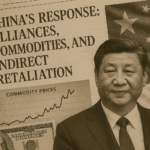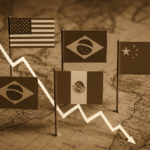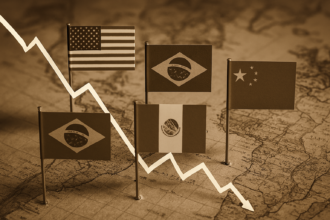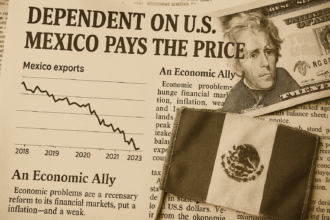On the surface, the trade war appears to be fought with tariffs, subsidies and sanctions. But behind the scenes, the real battle is taking place in the manipulation of currencies. In a world where almost all commerce is mediated by fiat systems, controlling the value of one's currency is controlling much more than prices—it is controlling power.
The United States uses the dollar as diplomatic and financial weapon. Sanctions, asset freezes and control over the SWIFT system are clear examples. China responds by keeping the yuan artificially undervalued to favor its exports — and, more recently, by promoting bilateral agreements using its own currency.
The result is an environment of permanent instability.
Emerging economies see their currencies depreciate rapidly, even when they follow balanced domestic policies. This impacts the cost of imports, inflation, external debt and sovereignty itself.
“Inflation is a tax without legislation.”
– Milton Friedman
This currency war is silent but brutal. And it is intensifying. As we saw in the previous article on China's response, the game is not limited to commercial measures. Currency has become an invisible but decisive battlefield.





